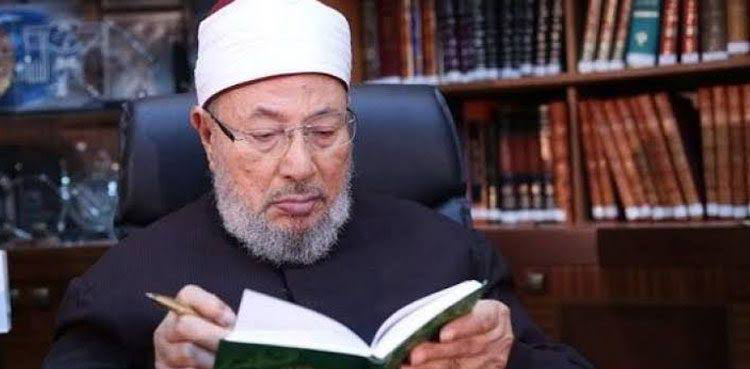TEN Shaykh al-Qaradawi’s Advice to Scholars & Preachers Of This Ummah
TEN Shaykh al-Qaradawi’s Advice to Scholars & Preachers of the Ummah, taken from the last of what he wrote in the introduction to his published works.
I advise my brothers – scholars and preachers – to follow these instructions, so that they can carry out their duty towards their Lord and their religion, and towards their Ummah:
1
That their allegiance is to Allah, glory be to Him, and to His religion alone, not to nationalism or patriotism, or to regimes, or to parties, or to people, except to the extent of their connection with Islam and their proximity to it.
2
To make their reference in every case to the Book of Allah and what is authentic from the Sunnah of His Messenger ﷺ, being guided by the guidance of the righteous predecessors of this nation in their understanding of the spirit of Islam, and their following of its methods, working to liberate Islam from what is invented in it over the centuries from the distortion of the extremists, the imitation of the imposters, and the interpretation of the ignorant.
3
To speak out with the word of truth in the faces of tyrants and those who aid them, and to command the good and forbid the evil, never fearing by Allah a blameless blame, nor an unjust power, like those who described them by saying: “Those who convey the Message of Allah and fear Him, and fear none except Allah. And sufficient is Allah as a Reckoner” (al-Ahzāb: 39).
4
To bear in mind the instruction of the Prophet, may God bless him and grant him peace, to Muadh ibn Jabal and Abu Mūsa al-Ash’ari when he sent them to Yemen and said to them: “Make things easy and do not make things difficult. Give glad tidings and do not repel people. Co-operate with each other and do not become divided.” How in need are scholars and advocates of this instruction all the time! And how much they need it in our time especially!
The meaning of this is that their motto should be kindness, not violence, and leniency, not strictness, for God loves kindness in all matters, and God has said to the best of His creation: “And if you were rude and hard-hearted, they would have dispersed from around you” (Āli-’Imrān: 159).
And the leniency I refer to is a leniency in the branches of fiqh and means, not in principles and objectives, and on this basis, we must treat people.
We must consider every Muslim who has performed the obligatory duties and avoided major sins in this era as a friend to us, and make them feel that they are one of us, even if they have some detestable, doubtful and minor opinions that he insists on, whilst inviting them with wisdom and good advice: to rise to what is better.
It is wrong and dangerous to be hostile to this type of Muslim and consider them against religion, only for an enemy of Islam to kidnap them, embrace them, and make them a tool for the destruction of the religion and the Ummah.
5
That they know their context/ era, their enemy and the battle of their time, so as not to occupy themselves, their students and their audience with side, subsidiary, or historical battles, oblivious to the battle of time and the battle of destiny. What I mean are the battle of Islam and the invading currents/ trends from the East and West, carrying to our children atheism, disintegration, and belittling our values and our laws.
These destructive currents are the greatest enemy to which we should direct most of our attention, most of our thinking, and all of our efforts, in order to preserve our Ummah’s character and authenticity, and protect it from dissolution and annihilation.
6
To take from the golden rule as a slogan for them and a constitution by which they deal with each other: “We co-operate in what we have agreed upon, and we excuse each other in what we differ in.”
7
To arm themselves with what they could from the knowledge of the era, for Imam al-Ghazāli was not able to defeat philosophy, revive the sciences of religion, and show the incoherence of philosophers, except after he mastered philosophy, and became one of its masters.
Likewise, Sheikh al-Islam Ibn Taymiyyah did not respond to all the deviant groups and explained their flaws, except after studying their beliefs and teachings from their books, with a careful and conscious study, even Judaism and Christianity. That is why he was not only an imam in legalities, but also in mentalities, as evidenced by his rich heritage.
There is much need for the scholar in our time to study modern culture as much as possible, such as psychology, sociology, economics, politics, ethics, philosophy, its doctrines, and history.
8
However, all of this can only be accomplished by liberating them from feeling that they are merely official employees in the state’s institutes, schools and mosques, and by feeling that they are the owners of the call, and people of ideas. So there is a difference between the employees and the preachers, the former live by Islam and eat by it, and the others live for Islam and die for it.
9
To connect and communicate with each other at the level of the Islamic world. Muslim scholars are a great force that has their audience, followers, and influence. They should work to be united within each country, and then try to co-ordinate and co-operate at the general Islamic level.
The enemies of Islam know the small differences that separate Muslim scholars, so they strengthen and magnify them, and work to keep them alive and prominent, and use them when necessary to strike each other, deluding a group of them that they are with them against their opponents in thought, and the truth is that they are against everyone, and the enemy of everyone. But it is nothing more than a damned dirty tactic. It is upon us Muslims to be more insightful and aware of them, and to turn their plots against them.
10
To stand by every Islamic call that has a sound direction, that is working to return Islam to the leadership of life once more, and to colour the society with the colour of Islam. They are at the forefront of its ranks in guidance, action, sacrifice, and exertion, “And who is better in speech than he who calls to God and does righteous deeds and says, ‘Indeed, I am of the Muslims’” (Fussilat: 33).





Comments
Post a Comment